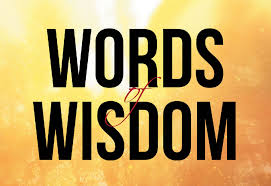
By Neal Lemery
When I have deep discussions with friends and family on issues near and dear to everyone at the table, I like to become reacquainted with the essential facts and the original source material. Recent heated social media postings about personal opinions, free speech, and our rights as citizens have led me to look again at the Constitution and the words carefully chosen over 200 years ago. The First Amendment to the U.S. Constitution says:
“Congress shall make no law respecting the establishment of religion, or prohibiting the free exercise thereof; or abridging the freedom of speech or of the press or of the right of the people peaceably to assemble, and to petition the government for a redress of grievances.” (1789)
Many consider this section of the Constitution the cornerstone of our democracy. Some scholars have argued that the foundation for all other freedoms are those guaranteeing free speech and a free press.
“The concept behind that view is that access to information by the public is the basis for a functioning democracy. James Madison, the fourth president of the United States, said it this way in 1822: ‘Knowledge will forever govern ignorance. And a people who mean to be their own governors must arm themselves with the power knowledge gives. A popular government without popular information or the means of acquiring it is but a prologue to a farce or a tragedy, or perhaps both.’
“What this means is that a free people must have full access to information about their government, and that they must be allowed to share this information with others. In practice, “the press,” or as we know it today, the news media, are the agents of the people in acquiring and distributing that information. The First Amendment guarantees access to information and guarantees the right to distribution information.” ACLU of Oregon website, https://www.aclu-or.org/sites/default/files/freespeech_full_background.pdf
Fifty years ago, the US Supreme Court held that the intent of the First Amendment was “to allow the media to examine and criticize public figures such as government officials, and that the only exception would be if there was a showing of actual malice or careless disregard of the truth on the part of the media.” ACLU, supra. (NY Times v Sullivan)
As we have dual citizenship (being citizens of the country and our state), we are also protected from governmental restrictions by Oregon’s Constitution.
“No law shall be passed restraining the free expression of opinion, or restricting the right to speak, write, or print freely on any subject whatever; but every person shall be responsible for the abuse of this right.” — Article 1, Section 8, Oregon Constitution (1859)
“[W]e have little trouble in concluding that the people who framed and adopted Article I, section 8, as part of the original Oregon Constitution intended to prohibit broadly any laws directed at restraining verbal or nonverbal expression of ideas of any kind.” State v. Ciancanelli
(Oregon Supreme Court, 2005)
These federal and state Constitutional provisions are essentially limitations on our governments from limiting our individual freedom of expression. One of the ideas from the American Revolution was to limit government regulation of personal opinions. Individuals and businesses can still restrict your expressions on their property and within their own businesses. My contracts with Facebook, my own website platform, and other social media are just that, contracts, with limiting terms and conditions. Those contracts give me access to public forums, but on the conditions the provider proscribes. Their platform; their rules. I’m a customer, a consumer of access to the media.
These Constitutional rights have very little to do with my relationship with the companies I have chosen to use to express my views on social media. After all, publishers of malicious libel and slander have legal liability. One example is the recent lawsuit by a voting machine manufacturer suing Fox News and a commentator for libel to the tune of over $1 billion.
If I want free speech (except if I am malicious and libel or slander someone or their business), and not risk censorship by the media, I can go stand on the street corner. Even there, it is against the law to incite a riot. And, as was held in one famous Supreme Court decision, I can’t falsely yell out “fire” in a crowded theatre.
The other side of the coin of having free speech is that I also have responsibility in how I express myself and what I have to say. That’s part of the duties of good citizenship and civic obligations. We are a community, and a democratic society functions when we act intelligently and advance the common good. Democracy can be messy but we’re in this together.
We have agreed to pay taxes to support public schools, roads, fire stations, and public utilities, because we have decided that educated kids, fire fighting, safe roads, and clean and dependable water are good things to have around. We follow the traffic laws, because, at the end of the day, we’ve been able to travel in an orderly and safe manner. All those good things only happen when we all follow the rules. The Founders of our country referred to those concepts as a social contract.
Like our other civic obligations, speaking our minds and being responsible for what comes out of our mouths and the viewpoints we express comes with obligations to carry out our citizenship duties in the spirit of advancing the common good and the welfare of the public.
I’m all for a rich and vigorous conversation and debate on the important issues of the day. Those engagements are frequent and sometimes range from enthusiastic to boisterous, thanks in part to the Bill of Rights. When we engage with each other, hopefully we all seek to benefit from the experience, and advance the common good. Improving the quality of our conversations is much like that popular saying, “a rising tide raises all boats.”


